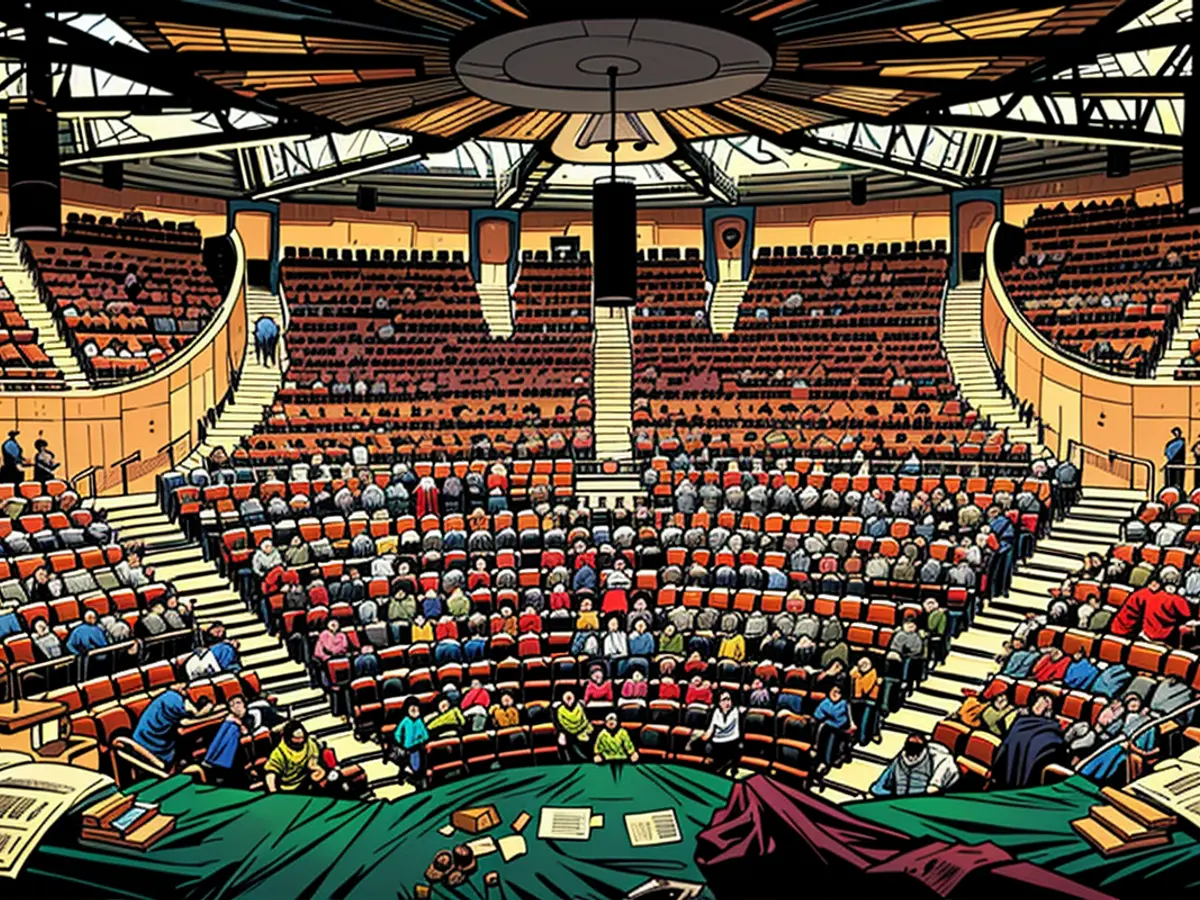Artists' income - Cultural funding in NRW only at minimum remuneration for artists
Nordrhine-Westphalia starts binding Landesfunding for cultural institutions to minimum wage limits for Artists from 1st August. NRW initially starts with two pure Landesprograms with minimum wages. From 2026, this will then be a prerequisite for all cultural funding where the state is involved, announced NRW Culture Minister Ina Brandes (CDU) in Düsseldorf.
NRW is the first large-scale state to consequently link a Landesfunding to minimum wages for artists, Brandes explained. "There is no trivial threshold." This applies from the first Euro of Landesfunding. This is different from the Bund, where honorar undergrenlines must be observed only when a project or an institution is funded to at least 50% by the Federal Government. This has been in effect since 1st July.
Many artists, despite a university degree, live near the poverty line
The reason for this initiative is the precarious income situations of many self-employed artists. Although most of them have completed a university degree, their annual income, according to statistics from the Artists' Social Security (KSK), often comes close to the poverty line. Many had to make ends meet with side jobs, Brandes reported.
A comprehensive social security coverage of such gaps in the employment history through the KSK is a second important pillar of the intended improvements, Brandes emphasized. "The goal is that full-time working artists can earn a living and contribute to their social security."
The Culture Ministers Conference agreed on an Honorar-Matrix in 2022, which clusters artistic activities - such as author, performance artist, actor, singer, dancer or choir leader - and formats, such as readings, exhibitions or performances. The states are asked to fill in this uniform basic structure with figures.
The NRW-Matrix: Living from art instead of driving a taxi
The tiered basic honoraria for NRW, for example, range from 250 to 500 Euro for a roughly 90-minute author's reading - tiered according to the expected number of visitors. For exhibitions, the minimum wage also depends on the economic power and reach of the respective institution and the duration of the exhibition. The range here is between 600 and 1200 Euro. If an offer is carried by several artists, there are partial payments. This is similarly broken down through numerous other areas and activities.
"We want to prevent artists from having to drive taxis," Brandes explained. "We cannot systematically pay them so poorly that they have no chance of living from their profession."
Corona pandemic reveals misery
For years, this has been accepted. "Then came Corona." It was an eye-opener. "We have learned in the Corona pandemic that this is not a good state of affairs." The range of particularly poorly paid artists reaches from those employed in cultural education to jazz musicians.
With two fully funded by the state programs in cultural education, North Rhine-Westphalia (NRW) now sets the starting shot for wage floors: "Culture and School" and "Female Artists and Artists in Kindergarten". This means no need for agreement with co-financiers, Brandes explained. "We are setting standards." She assumes that foundations will also follow this model.
Million-dollar precautions for higher wages
The desired increase in wages will of course also affect the budget. However, the overall cultural budget will not be raised, the minister stated. She has made provisions for both the current and the next fiscal year. In 2025, 1.6 million Euros are planned for the introduction of wage floors. The introduction will be put to the test in a technical review in the summer of 2025. By 2026, all other actors can adjust accordingly. Most funding is provided jointly with the Federal Government or also with Communes.
- The CDU's Ina Brandes, the Culture Minister of North Rhine-Westphalia, announced that from August 1st, Landesfunding for cultural institutions will be tied to minimum wage limits for artists.
- Brandes highlighted that NRW is the first large-scale state to establish a direct link between Landesfunding and minimum wages for artists, with no exemptions.
- Many artists, despite holding a university degree, struggle financially, often living close to the poverty line, as reported by Brandes.
- In response to the precarious income situations of self-employed artists, NRW is implementing a comprehensive social security coverage through the KSK as a second important pillar of improvement.
- The Culture Ministers Conference agreed on an Honorar-Matrix in 2022, which provides a uniform structure for artist activities and formats, with states required to fill in the details.
- For NRW, the minimum wage for authors for a 90-minute reading ranges from 250 to 500 Euros, depending on the expected number of visitors, while for exhibitions, the minimum wage varies between 600 and 1200 Euros, considering the institution's economic power and reach.
- The Coronavirus pandemic revealed the misery of underpaid artists, prompting the implementation of the minimum wage limits in NRW, starting with two fully funded programs in cultural education.








